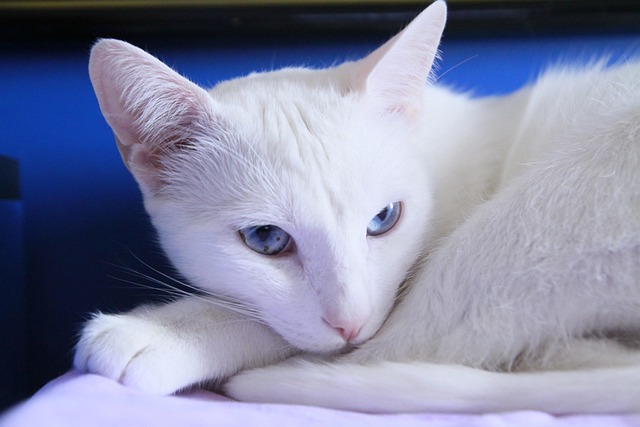You hit the hay for seven full hours. You skip that late coffee. You even close your eyes well before the clock strikes twelve. Yet, morning hits, and you’re still foggy, dragging yourself to the kitchen for a strong brew. Sound familiar? It’s a drag when sleep doesn’t deliver.
Now picture this: Folks in Japan grab the same seven hours and bounce out of bed sharp, ready to tackle the day. No zombie vibes. What’s their edge? It’s not some rare gene or fancy bed. We might just be missing the mark on how to rest right. Japanese ways focus on smart habits that pack deep recovery into shorter nights. Stick around, and you’ll grab seven easy tweaks to boost your sleep quality. These come from real studies and cultural tricks. Start one tonight, and feel the shift.
Why 8 Hours Isn’t Always Better Than 7
The Universal Struggle: Tiredness Despite Adequate Sleep
Many of us clock in seven or eight hours but wake up wiped out. You do all the “right” things, yet that groggy haze lingers. It’s like your body hit snooze on recharge mode.
This zombie state hits hard. You push through with caffeine, but it only masks the issue. The real fix? It’s about quality sleep, not just piling on more minutes. Think of it as fuel efficiency—better habits mean more energy from less time in bed.
The Japanese Advantage: Efficiency Over Duration
Japan nails this with a culture that squeezes max rest from six to seven hours. They wake refreshed, not ragged. No need for long slogs in bed.
Their secrets lie in simple, science-backed routines. We’ll cover seven key Japanese sleep habits to help you maximize sleep quality. These let you wake up refreshed without chasing endless hours. Keywords like Japanese sleep habits show up in searches because they work—try them and see.
Habit 1: The Neuroscience of Temperature – Cool Down Your Cave
The Ideal Sleep Temperature Revelation
Japanese homes keep bedrooms cool, around 55°F or 13°C on average. A big study of over 2,000 spots confirmed this. In the US, we crank it up to 68-72°F, which fights good rest.
Why does it matter? Your body craves a drop in core temp to dive into deep sleep. Hot rooms block that. Dr. Matthew Walker, a top sleep expert, says you need a 2-3° cooldown for the brain to heal right.
Cool air acts like a gentle nudge. It tells your system it’s time to unwind. No wonder Japan edges out on energy.
Actionable Temperature Tweak Tonight
Set your thermostat to 60-65°F before lights out. If heat’s an issue, crack a window or run a fan. This optimal bedroom temperature for sleep mimics nature’s cool-down signal.
You’ll notice it fast. Your body cools easier, slipping into restorative phases quicker. It’s a small switch with big payoffs—no more tossing in a stuffy space.
Habit 2: Posture Over Plushness – Support for Spinal Alignment
Ditching Cloud Comfort for Firm Support
We chase soft, fluffy beds like they’re a treat. But your back begs to differ. Too much give messes with spine position.
In Japan, futons on tatami mats rule. Firm and flat, they hold your body straight. Soft setups create pressure spots that wake you in tiny bursts. Those micro-awakenings build up, leaving you groggy by dawn.
Firm means better flow for blood and nerves. It cuts those sneaky disruptions. Your sleep turns deeper, more solid.
The Compounding Effect of Firm Surfaces
James Clear, from Atomic Habits, nails it: Tiny tweaks stack up huge. Swap to a firmer mattress or topper. Your spine stays aligned all night.
This isn’t about roughing it. It’s smart support for uninterrupted rest. Over time, you’ll wake with less ache and more pep. Test it out—feel the difference in how you move.
Habit 3: Core Temperature Shock – The Hot Bath Sleep Trigger
The Japanese Ouro Ritual Explained
Japan’s got this bath routine called Ouro. You soak in hot water, about 104°F or 40°C, right before bed. Sounds counterintuitive, doesn’t it?
Here’s the trick: Heat spikes your core temp, then it plummets fast after. That drop flips the switch for sleep in your brain. It’s like hitting a reset button on your internal clock.
Studies back this. The rapid cool signals deep rest mode. No wonder it preps you for quality shut-eye.
Integrating the Ritual into Your Evening Routine
Aim for that hot bath or shower one to two hours before bed. Let the warmth fade, pulling your body into sleep prep. Add a pre-sleep bath routine to unwind without screens.
You’ll drift off easier. Muscles relax, mind quiets. It’s a natural hot bath for deep sleep hack—simple and effective.
Habit 4: Cultural Reframing – Shifting the Shame Around Tiredness
Tiredness as Feedback, Not Failure
West side pushes the grind: Sleep too much, and you’re lazy. Japan flips it. Looking beat? That’s a nod to your hard work. They even nap on trains—it’s called inemuri, and it’s respected.
This mindset eases shame. Tiredness isn’t a flaw; it’s your body’s way of saying “recharge.” Hiding it with coffee just stresses you more, blocking real rest.
Honor the yawn. It lets your nerves chill out. No guilt means smoother wind-down.
Honoring Your Body’s Signals
Next time fatigue hits, pause. Don’t chug energy drinks. See it as a cue to rest, like Japan does.
This shift cuts mental blocks for sleep health. Stress drops, and your system relaxes. It’s a mental aspect of sleep health that builds better habits.
Habit 5: Strategic Recovery – Mastering the Mini Nap
Efficiency Over Obsession: The 20-Minute Recovery
Japan skips the eight-hour obsession. They go for smart recovery instead. A quick 20-minute nap does wonders.
Science shows it sharpens memory, lifts mood, and boosts focus. No groggy hangover like long siestas. It’s pure efficiency—recharge without the drag.
You don’t need extra night hours. Just slot in this break to top off your tank.
Building Naps into a Sustainable System
James Clear says tweak the setup, not chase numbers. Add a 20-minute nap midday when you dip. Less night pressure means sounder sleep overall.
Pick a quiet spot, set a timer. Wake refreshed, ready to roll. This strategic nap habit maximizes sleep quality easy.
Habit 6: Digital Detox Boundaries – Tech Off Means Sleep On
Mitigating Melatonin Suppression from Blue Light
Screens flood your eyes with blue light. It stalls melatonin, the hormone that ushers in sleep. Phones, TVs—they’re sleep thieves.
Japan’s teens pack smartphones—95% own one. But they draw lines. No wild scrolling near bedtime. Discipline keeps melatonin flowing.
That light tricks your brain into daytime mode. Result? Tossing and turning instead of deep dives.
Establishing the One-Hour Screen-Free Zone
Cut screens one hour before bed. Go dark, or dim with night mode and soft sounds. Your bed’s for sleep, not shows.
This blue light impact on sleep fix is key. Eyes rest, hormone kicks in. You’ll nod off faster, stay under longer. Screen time before bed? Keep it early.
Habit 7: The Pillow Upgrade – Neck Alignment Through Support
Why Soft Pillows Sabotage Your Sleep
Puffy pillows feel nice at first. But they sink under your head, twisting your neck wrong. Eight hours like that? Ouch.
It throws off your spine’s curve. Pain builds, sleep breaks. You wake stiff, not restored.
Support matters more than fluff. Bad alignment means shallow rest all night.
Sobakawa Pillows and Neck Pain Reduction
Japan uses sobakawa pillows, stuffed with buckwheat hulls. They mold to your neck’s shape, not just head weight. Perfect fit, every time.
Research points to up to 50% less neck pain with these. Switch, and mornings feel lighter. No more kinks holding you back.
Grab one that contours right. Your rest—and posture—will thank you.
Conclusion: Synthesizing Japanese Wisdom for Your Best Rest
Your Seven-Point Sleep Reset Checklist
Pull these Japanese sleep secrets into action. Here’s the quick list:
- Cool your room to 60-65°F for that natural drop.
- Soak in a hot bath one to two hours before bed.
- Opt for a firm surface to keep your spine straight.
- View tiredness as a sign to honor, not hide.
- Slot in 20-minute naps for daily recovery.
- Ditch screens one hour pre-sleep.
- Pick a supportive pillow for neck alignment.
These tweaks build deep sleep without big changes. They’re from real Japanese habits that maximize sleep quality.
Performance Through Restoration
Better rest fuels sharper thinking and steady energy. It’s not just about not feeling beat—it’s peak you, every day. Wake up refreshed, handle life with ease.
Pick one habit to try tonight. Which will it be? Share in the comments below. Let’s swap tips and lift each other up.



